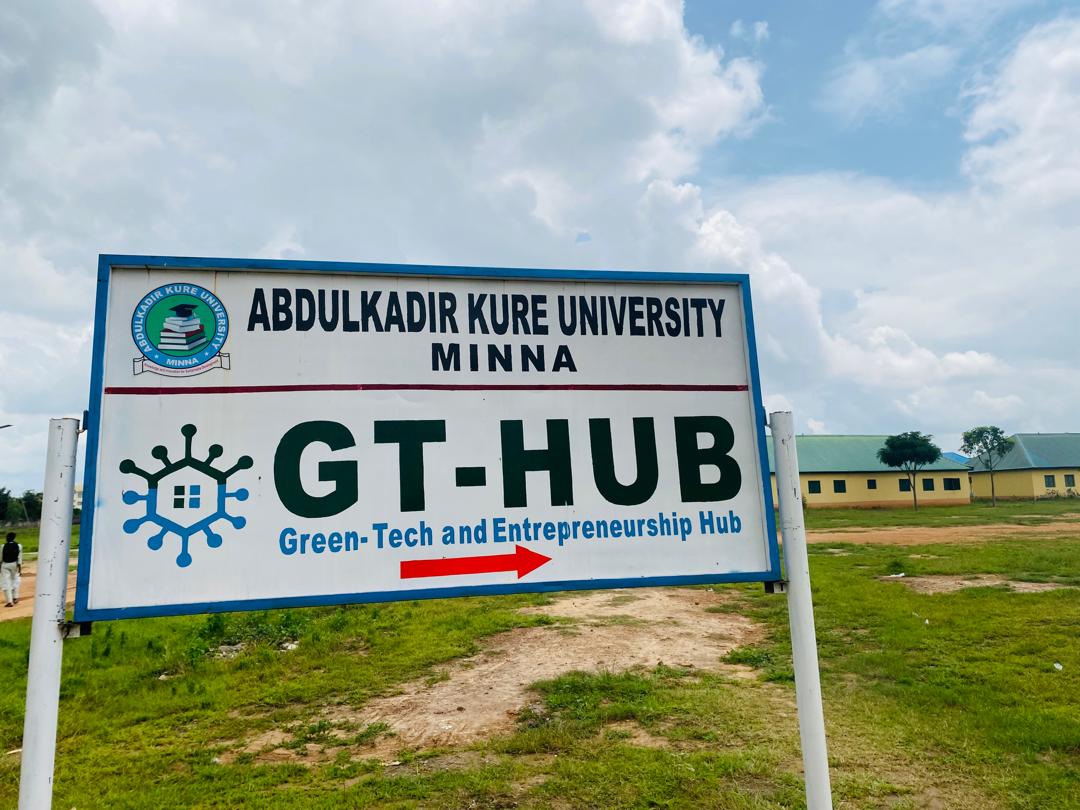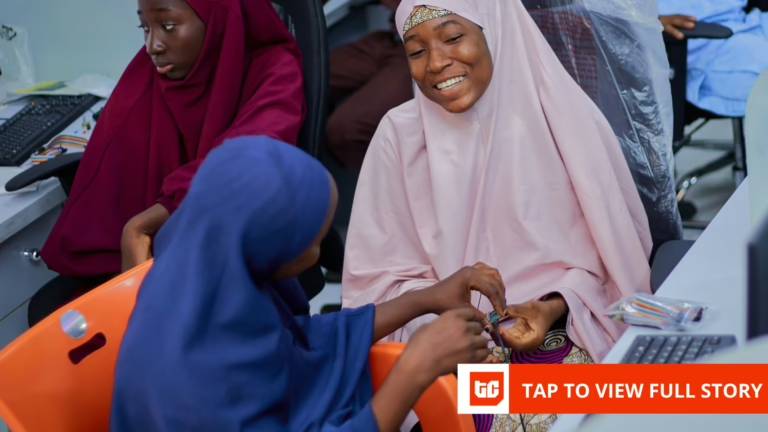Spanning the largest geographical area in Nigeria, Niger State is a region characterized by its rivers, rolling hills, and lush green landscapes punctuated by resilient trees. Agriculture sustains millions here, and cultural heritage runs deep. Despite its rural and traditional backdrop, this expansive north-central Nigerian state has embraced cutting-edge technology, with artificial intelligence (AI) already making a tangible impact by saving lives and generating hundreds of millions of naira in savings.
The catalyst for this transformation was a tragic event in 2024 during a government recruitment exercise. Over 10,000 candidates converged on computer-based testing (CBT) centres, resulting in a deadly stampede that claimed two lives. In response, the state government empowered its newly established Ministry of Communications Technology and Digital Economy to devise a safer alternative. Their solution was an AI-driven remote examination platform that allowed applicants to complete tests from home, eliminating the need for physical attendance at crowded centres. This innovation not only prevented further tragedies but also streamlined the process for more than 50,000 candidates, saving the government approximately ₦500 million in operational costs.
“We successfully saved the government ₦500 million,” stated Suleiman Isah, the commissioner leading the initiative, from his office in Minna. “No candidate had to visit any CBT centre during the recruitment.”
Heritage Meets Innovation: Niger’s Digital Awakening
Driving through Niger State, one cannot help but notice the monumental Kainji Dam, constructed in the 1960s, alongside the Jebba and Shiroro Dams from the 1980s and 1990s respectively. These engineering feats symbolize the state’s industrial potential. Yet, for many years, this legacy did not translate into digital advancement. While tech hubs flourished in Lagos and Abuja, Niger State lagged behind, with minimal technological infrastructure or investment.
The tide began to turn in 2023 with the inauguration of the Ministry of Communications Technology and Digital Economy and the appointment of Suleiman Isah as commissioner. Prior to this role, Isah led the state’s Inland Revenue Service, bringing valuable administrative experience to the tech sector.
Before official government involvement, a dedicated group of young entrepreneurs had already been laying the groundwork for Niger’s tech ecosystem. Startups like Binarify Limited, founded by Samuel Adeniyi, Paritie Hub led by Syed Abdullahi, Trecagon by Akin Thompson, P3 Consulting by Nosa Osunde, SchoolSQL by Emmanuel Fayomi, and YKD Consults run by Daniel A. Atteh, have been instrumental in nurturing innovation and digital skills within the state.
“The technology ecosystem in Niger State has significant gaps,” noted Syed Abdullahi during a tech community meeting in Minna on August 8, 2025. “The challenge has never been just about skills, though those exist, but about attracting government and investor attention.” This focus only materialized with the current administration’s commitment starting in 2023.
Umar Auna, who previously led the Google Developer Groups in Minna before joining the Ministry as Startup Desk Officer, recalled the difficulties of engaging with past governments. “Previously, there was no responsive channel for tech innovators to collaborate with the government. That has changed dramatically under the current leadership, which prioritizes technology,” he said.
Infrastructure Progress Amid Connectivity Challenges
Governor Umaru Mohammed Bago has spearheaded one of Niger State’s most ambitious infrastructure projects in decades, including the construction of 556 kilometres of roads across all 25 local government areas, 250 kilometres of intra-city roads in major towns, and 202 kilometres within Minna township. While these developments signal progress, they have also caused disruptions, delaying the deployment of essential telecommunications infrastructure.
By early 2025, Niger State had installed approximately 3,682 kilometres of fibre optic cables, ranking fifth nationwide in fibre coverage. However, actual internet connectivity remains inconsistent due to limited telecom operator presence, resulting in unreliable service for residents and businesses.
“Ongoing roadworks complicate the installation and maintenance of fibre cables, leading to frequent network interruptions,” explained Commissioner Isah. “Protecting fibre infrastructure from damage is a persistent issue.”
Negotiations with major players like IHS Towers and the Nigerian Communications Commission (NCC) to expand network infrastructure have stalled. Consequently, the government is exploring innovative alternatives, such as utilizing existing power lines to deliver fibre directly to households.
Collaborations between the Ministry of Communications Technology and Digital Economy and the Ministry of Works and Urban Development aim to implement a ‘dig-once’ policy by coordinating fibre duct installations alongside roadworks. While the government encourages private sector investment, securing firm commitments remains a challenge.
Currently, most residents rely on mobile networks, which often provide unstable connections. To overcome this, tech hubs like LapPlace Hub, P3 Hub, and Binarify Limited increasingly adopt satellite internet services such as Starlink to ensure reliable high-speed access.
“Starlink has been a dependable solution for our connectivity needs,” shared Prof. Mohammed Aliyu Paiko, Vice Chancellor of Abdulkadir Kure University (AKU). The university, which opened in 2024, hosts GT-Hub, a digital innovation and incubation centre fostering tech talent.
Grassroots Innovation Driving Digital Transformation
Rather than top-down directives, Niger State’s digital evolution is propelled by a vibrant community of innovators combining entrepreneurial spirit with institutional backing. At Abdulkadir Kure University, GT-Hub equips students with skills in AI, data science, and software engineering, encouraging them to develop startups while still in school.
“Our goal is for students to launch successful ventures during their studies,” said Umar Zakari, ICT Director at AKU. “We began with 86 students, training them in cutting-edge fields that define the fourth industrial revolution.”
The Federal University of Technology (FUT), Minna, also fosters entrepreneurship through its Centre for Entrepreneurship, promoting pitching, prototyping, and national competitions. This environment nurtures innovators like Samuel Adeniyi, a mechatronics graduate and co-founder of Binarify Limited, which offers an AI-powered platform that consolidates multiple online stores into a single dashboard, simplifying e-commerce management.
Each month, Adeniyi co-hosts Founders Fridays, a collaborative event organized by the Niger Startups and Innovators Community (NSIC). This gathering serves as a hub for exchanging ideas and developing practical skills in software development, data analytics, and AI, directly contributing to economic growth.
In partnership with the United Nations Development Programme (UNDP), the Ministry is establishing specialized training centres focused on robotics, AI, and drone technology. The NCC has also expanded digital literacy programs, including training 90 internally displaced persons (IDPs) in camps, with some participants attending the Nokia Academy in Abuja for advanced instruction.
Despite these advances, cultural attitudes remain a barrier. “Many still believe the path to success is solely through formal education and government employment, rather than investing in business branding or innovation,” observed Syed Abdullahi.
Empowering the Private Sector: A New Governance Model
Contrary to the typical bureaucratic inertia in Nigerian governance, Niger State’s Ministry of Communications Technology and Digital Economy adopts a facilitative approach, enabling private enterprises to spearhead technological development.
“We face two fundamental questions: Are we here to transform governance directly, or to create an enabling environment?” Commissioner Isah explained. “While e-governance may take years, sustainability depends on empowering the private sector to lead.”
A notable policy is the waiver of right-of-way (RoW) fees for telecom companies, traditionally a significant cost barrier. In exchange, companies must provide free broadband access to all tertiary institutions along their fibre routes. This public-private partnership model ensures infrastructure ownership remains with private entities, while the government acts as a primary beneficiary.
In healthcare, the state introduced the Asibiti system, a unified digital health card network connecting all general and teaching hospitals. This system incorporates a digital wallet to reduce corruption, allows citizens to pre-fund medical expenses, and safeguards patient data privacy while maintaining government ownership.
Education has also been digitized, with the basic education leaving certificate now issued exclusively as a secure digital document embedded with QR codes, eliminating risks of loss or forgery.
Revenue collection has undergone a dramatic overhaul, transitioning to a centralized billing system inspired by the federal Treasury Single Account (TSA). This integration of state and local revenue streams has increased monthly internal revenue from ₦350 million (approximately $219,000) to between ₦3.5 and ₦4 billion (around $2.5 million) within two years.
Practical AI Applications Transforming Daily Life
Niger State’s AI initiatives focus on pragmatic solutions that address immediate challenges rather than futuristic concepts. Two flagship projects exemplify this approach.
The AI-enabled remote examination platform, initially developed to prevent recruitment-related tragedies, has been adopted by Abdulkadir Kure University for staff recruitment tests. In 2025, over 12,000 candidates completed exams remotely, resulting in a transparent, efficient, and fraud-resistant process, according to the university’s Vice Chancellor.

AI is also revolutionizing civil service administration by auditing digitized employment and pension records. The system detects inconsistencies such as impossible birthdates, forged certificates, and duplicate identities, thereby eliminating long-standing abuses and expediting verification.
“We are piloting AI for payroll management,” Commissioner Isah revealed. “It cross-checks age and graduation dates to identify anomalies, such as someone purportedly graduating university at age 12, helping to combat age falsification in the civil service.”
Looking ahead, the government plans to launch an AI-powered contact centre that will automatically route citizen complaints and emergency reports to the nearest response units, eliminating long wait times.
These initiatives may lack the glamour of headline-grabbing AI projects worldwide, but they deliver life-saving, cost-effective, and trust-building outcomes for Niger State’s citizens.
This article was produced with support from the Centre for Journalism Innovation and Development (CJID) and Luminate.
Don’t miss Moonshot by TechCabal, returning to Lagos on October 15-16! Join Africa’s leading founders, creatives, and tech visionaries for two days of inspiring keynotes, networking, and forward-thinking ideas. Early bird tickets are now 20% off-secure yours at moonshot.techcabal.com.





















0 Comments